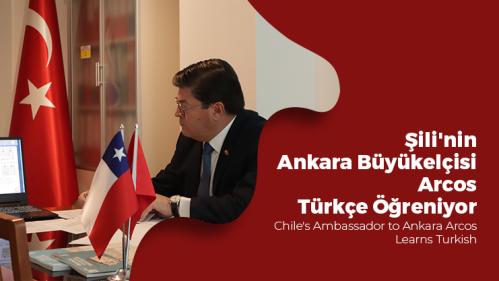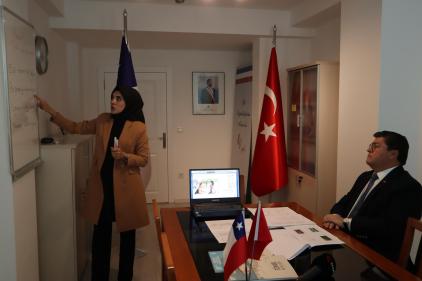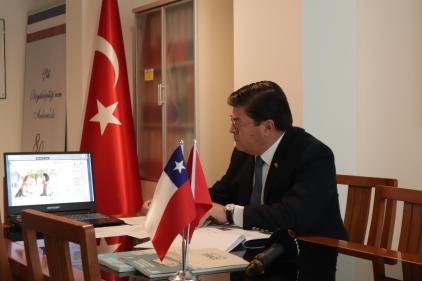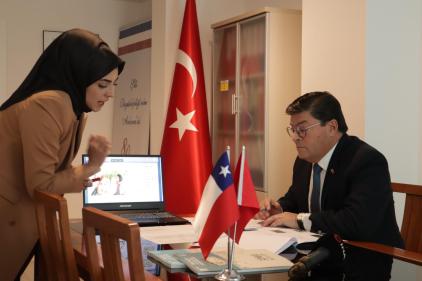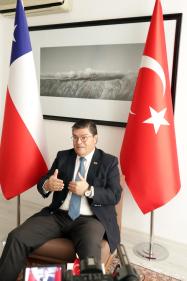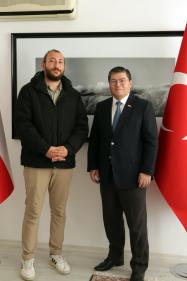Chile’s Ambassador to Ankara Arcos Learns Turkish
Rodrigo E. Arcos, Chile’s Ambassador to Ankara, who started learning Turkish in order to get to know the culture and society more closely and to communicate more easily, stated that he felt a sense of independence and wished to go out and chat with people in Turkish.
Ambassador Arcos presented his letter of credence to President Recep Tayyip Erdoğan on May 4, 2021, after serving as deputy director general at the South American Directorate General in his country, and started learning Turkish shortly after taking office. Attending the Turkish courses initiated by the Yunus Emre Institute to learn Turkish, Arcos continues his education in the official residence of the embassy with an instructor. Arcos made exclusive statements about his process of learning Turkish.
"I WANT TO GO OUT AND TALK TO PEOPLE"
Stating that he tried to learn the local language of every country he visited during his tenure, Arcas said:
"I do this for two reasons. One, I want to be more independent, I want to go out and talk to people. And two, just for myself. Because communication is essential for a diplomat, it is the basis of all things. So if you understand the way people communicate, you understand their culture, their social lifestyle and how they conduct politics. If you don't know the language, you miss many opportunities to break the ice and get closer to your colleague. Even a few sentences give you a chance to communicate. I speak Japanese, Portuguese and a little Chinese.”
"SO MUCH CHANGES WHEN I CAN JUST SAY ‘HELLO’ AND ‘GOOD MORNING’ "
Expressing that learning Turkish was a little more difficult for him, Arcos remarked: "Maybe it is because I started very late but just saying ‘Hello” and “Good morning” makes a big difference. Good morning. How are you? I'm fine, how are you? These simple sentences are great ice breakers and make it easier for you to learn the topics of conversation."
Noting that his mother tongue is Spanish, Arcos said: "Turkish is so different in structure, it is very difficult to form long sentences in my case. I tried to adapt to Turkish, because you take a word and you start putting more and more things at the end of the word. So you can make very long words but one day, you figure out that it is easier to learn and easier to understand. Figuring out how to start is the most difficult part.”
"YOU NEED TO PUT WHAT YOU LEARN INTO PRACTICE EVERY DAY"
Stating that the Turkish education provided by Yunus Emre Institute and the instructors are excellent, Arcos noted: "We have the opportunity to take some lessons every week. I prefer in person lessons since they offer more opportunities to interact. I can ask the questions that I can form, I can acquire some tips to make things easier. I still think the same thing applies to all languages, you have to be consistent from the start. So you can never stop, you have to be organized, you have to try to learn and you have to put what you learn into practice every day."
Arcos stated that he had been studying about the Ottoman Empire, Ottoman history and Turkish history in his school years. Reminding that he also has a master's degree in international relations, Arcos noted that they are studying the Republic of Turkey and Turkish history.

